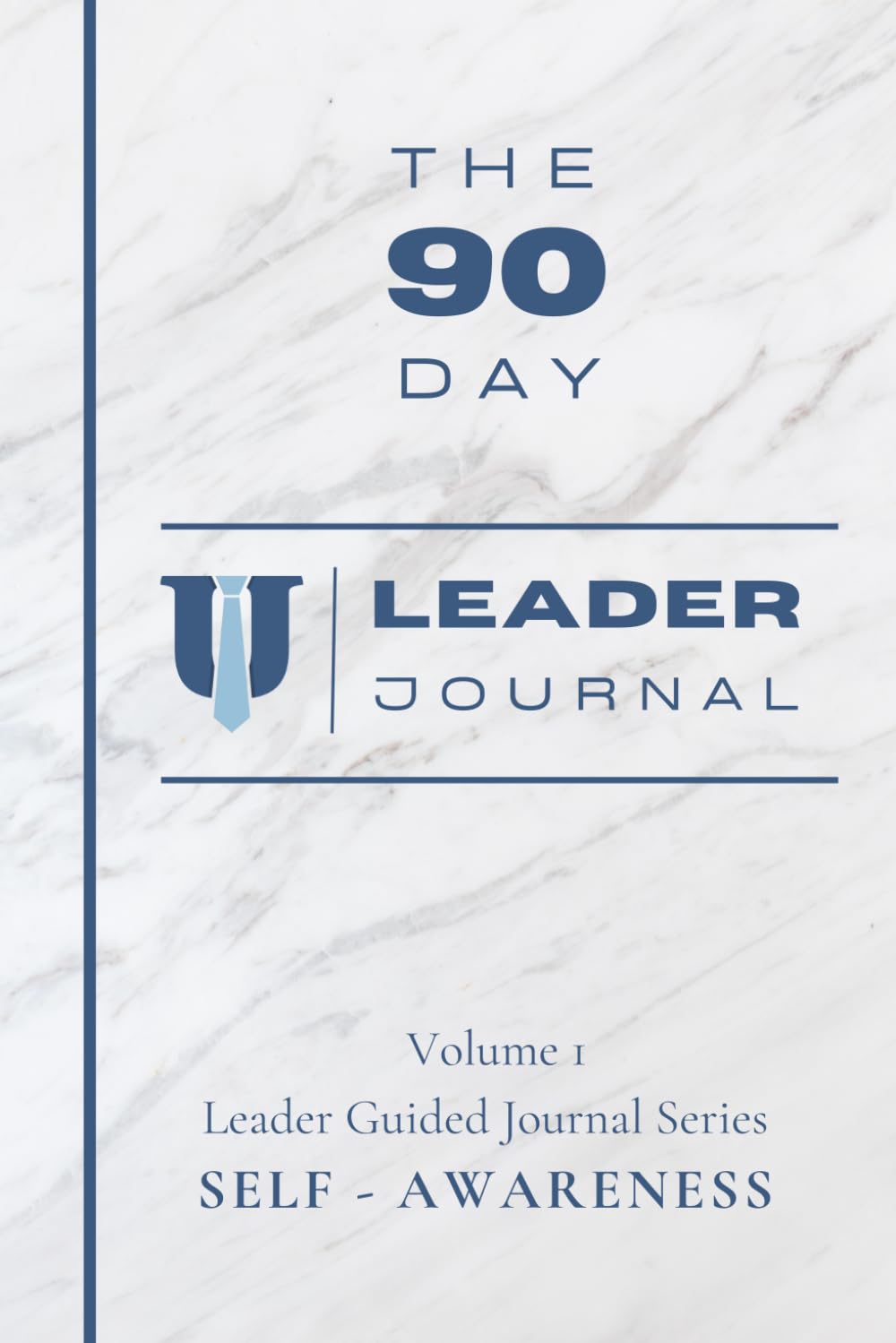
In this blog, we dive into the indispensable practice of self-care journaling for leaders, exploring how this reflective tool can bolster resilience, enhance decision-making, and foster emotional intelligence. Discover practical strategies and prompts to integrate journaling into your leadership routine, empowering you to navigate leadership demands gracefully and effectively.
Table of Contents
Introduction
In the fast-paced world of leadership, where decisions not only shape our careers but also influence the lives of others, self-care often takes a backseat. Yet, the vitality of self-care for leaders cannot be overstated. It is the cornerstone of personal well-being, professional resilience, and effectiveness. Self-care for leadership is not a luxury; it’s a necessity that fuels the endurance and empathy required to lead others effectively.
Journaling, a simple yet profoundly impactful practice, emerges as a powerful tool in a leader’s self-care arsenal. Beyond its traditional view as a personal diary, journaling serves as a reflective mirror for leaders, offering a space to explore thoughts, emotions, achievements, and challenges. This practice promotes mental clarity, emotional release, and strategic thinking—key components of effective leadership.
The benefits of self-care journaling for leaders extend far beyond personal health. It enhances decision-making abilities, fosters emotional intelligence, and cultivates a culture of mindfulness and reflection within the leadership practice. By committing thoughts and reflections to paper, leaders can navigate the complexities of their roles with greater ease and insight, turning daily pressures into opportunities for growth and learning.
This guide aims to explore the transformative power of self-care journaling for leaders. Through understanding the critical intersection of self-care and leadership and by providing practical steps to integrate journaling into your leadership practice, we embark on a journey to enhance your leadership effectiveness through mindful self-care. Join us as we delve into the essentials of self-care journaling, tailor-made for the unique challenges and opportunities faced by leaders today.
Understanding Self-Care for Leaders
Self-care is an essential, yet often overlooked, component of effective leadership. It goes beyond mere relaxation or leisure, representing a comprehensive approach to maintaining one’s physical, mental, and emotional well-being. For leaders, self-care is the foundation upon which resilience, decision-making, and empathy are built. This section delves into the significance of self-care for leaders, the challenges it addresses, and its impact on leadership effectiveness.
What is Self-Care?
- Definition: A deliberate activity to care for our mental, emotional, and physical health.
- Key Components:
- Physical activity
- Adequate rest
- Healthy eating
- Mindfulness practices
- Emotional reflection and processing
Why Self-Care is Crucial for Leaders
- Enhances Decision-Making: Clear, focused thinking leads to better decisions.
- Boosts Resilience: Equips leaders to handle stress and setbacks.
- Promotes Emotional Intelligence: Improves understanding and management of one’s emotions and those of others.

Related
Leader Self Care
Challenges Addressed by Self-Care
- Stress and Burnout: High levels of responsibility and pressure can lead to exhaustion without proper care.
- Decision Fatigue: Constant decision-making depletes mental energy, making self-care vital for replenishment.
- Emotional Dissonance: The need to manage personal and professional emotions, often in conflict, underscores the importance of emotional self-care.
The Impact of Self-Care for Leaders
- Sustained Performance: Regular self-care prevents burnout and maintains high levels of performance.
- Authentic Leadership: Self-awareness and emotional health foster genuineness in leadership.
- Improved Team Dynamics: Leaders who practice self-care set a positive example, encouraging a healthy work environment.
In summary, self-care for leadership is not an optional add-on but a critical element of effective, sustainable leadership. It addresses key challenges leaders face today and lays the groundwork for a healthier, more resilient approach to leadership. By prioritizing their well-being, leaders enhance their performance and contribute to a more positive, productive organizational culture.
The Intersection of Self-Care and Leadership
The intersection of self-care and leadership is where the personal meets the professional, fundamentally shaping the approach, effectiveness, and sustainability of one’s leadership style. This section explores how self-care practices directly influence core leadership qualities and the ethical framework within which leaders operate, showcasing real-life examples of leaders who embody these principles.
Self-Care Enhances Key Leadership Qualities
- Resilience: Self-care builds resilience, enabling leaders to bounce back from setbacks with greater strength and wisdom.
- Empathy: By understanding and caring for one’s own needs, leaders can better empathize with the needs of their team members.
- Clarity of Thought: Regular self-care practices, such as mindfulness or meditation, clear the mind, leading to more focused and strategic decision-making.
Self-Care and Leadership Ethics
- Responsibility to Self and Others: Ethical leadership starts with self-care, recognizing that one cannot effectively lead others without first attending to one’s own well-being.
- Modeling Healthy Behaviors: Leaders have a unique opportunity to set a positive example for their teams by prioritizing self-care, thus promoting a culture of well-being within the organization.
Self-Care Strategies for Leaders
- Routine Physical Exercise: Whether it’s a morning run or yoga, regular physical activity helps manage stress and boosts energy levels.
- Mindfulness and Meditation: These practices enhance presence, patience, and decision-making capacity.
- Nutrition and Sleep: Prioritizing healthy eating and adequate rest is crucial for mental clarity and emotional regulation.
- Emotional Reflection: Regular journaling or professional coaching can provide valuable insights into emotional patterns and leadership challenges.

Related
Developing Your Self-Care Plan
Integrating self-care into leadership is not merely about personal health; it’s about embodying the qualities that make for compassionate, effective, and sustainable leadership. By prioritizing their well-being, leaders enhance their own performance and inspire and uplift those they lead, fostering a culture of health and success within their organizations.
Journaling as a Self-Care Strategy for Leaders
Journaling is a transformative self-care strategy for leaders, offering a private space to reflect, plan, and grow. This section explores the unique benefits of journaling, the types of journaling practices suited for leaders, and tips for seamlessly integrating this practice into a leader’s busy schedule.
Benefits of Journaling for Leaders
- Enhanced Self-awareness: Writing about daily experiences and feelings can heighten leaders’ self-awareness, a key aspect of emotional intelligence.
- Stress Reduction: Journaling provides an outlet for processing stress, anxiety, and challenges, promoting mental health and clarity.
- Improved Decision-making: Reflecting on past decisions and their outcomes can sharpen a leader’s decision-making skills, offering insights for future challenges.
- Goal Setting and Reflection: Journaling about goals, progress, and setbacks helps leaders stay focused and aligned with their core values and objectives.
Types of Journaling Practices for Leaders
| Type of Journaling | Description | Benefits |
|---|---|---|
| Reflective Journaling | Daily reflections on leadership experiences, lessons learned, and personal feelings. | Enhances self-awareness and emotional intelligence. |
| Gratitude Journaling | Regular entries on things one is grateful for, focusing on positive aspects of leadership and life. | Boosts positivity and resilience. |
| Strategic Planning Journaling | Mapping out strategic goals, brainstorming solutions, and tracking progress over time. | Sharpens decision-making skills and aids in achieving leadership objectives. |
Integrating Journaling into a Leadership Routine
| Strategy | Description | Tips |
|---|---|---|
| Set a Regular Time | Find a consistent time to journal, creating a routine. | Morning, lunch, or before bed are popular choices. |
| Keep it Accessible | Use a physical journal or a digital app that’s easily accessible. | Choose the medium that you’re most likely to use regularly. |
| Use Prompts | Start with prompts to guide your reflections. | Prompts can focus on daily leadership challenges, gratitude, or team successes. |
| Embrace Brevity | Journal entries can be brief; the quality of reflection matters more than quantity. | A few insightful sentences can be more valuable than pages of unfocused writing. |
Overcoming Common Barriers
- Time Constraints: Even the busiest leaders can set aside 5-10 minutes daily for journaling. The key is recognizing journaling as a non-negotiable part of self-care.
- Consistency: Building a habit takes time. Start small and gradually increase your journaling practice as it becomes a natural part of your routine.
- Privacy Concerns: Digital journals with encryption or a simple locked diary can provide security for those worried about privacy.
Journaling is a powerful self-care tool that aligns with the demands and responsibilities of leadership. It offers leaders a reflective practice that supports their personal and professional growth, enabling them to lead with greater insight, empathy, and effectiveness. By making journaling a regular part of their self-care routine, leaders can enhance their capacity to navigate the complexities of their roles, benefiting themselves and those they lead.
Starting Your Self-Care Journaling Practice

Kickstarting Your Journey
Embarking on your self-care journaling journey begins with choosing your journal. Select a format that resonates with you, whether a classic notebook or a digital app. The key is to pick something you’re excited to use every day.
Setting Your Journaling Goals
Define what you hope to achieve with your journaling practice. Is it greater self-awareness, stress reduction, or enhanced decision-making? Your goals will guide the structure of your entries and the focus of your reflections.
Creating a Journaling Habit
Consistency is vital. Start with just a few minutes each day, carving out a specific time for journaling. Early morning or late evening works well for many, offering a quiet moment for reflection.
Journaling Prompts to Get Started
Begin with simple prompts to ease into the habit. Ask yourself, “What was the most challenging part of my day, and why?” or “What am I grateful for today?” These prompts can help focus your thoughts and make journaling a more approachable practice.
Reflecting on Your Progress
Review your entries periodically to reflect on your growth and insights. This can be incredibly rewarding and informative, highlighting patterns and areas for further development in your leadership and personal life.
Embracing Imperfection
Your journal isn’t a place for perfection. Embrace the messy, unfiltered thoughts as they come. This authenticity is where the true value of your journaling practice lies, offering a candid reflection of your leadership journey.
Following these steps, you’ll establish a self-care journaling routine supporting your growth and resilience as a leader. Remember, the journey is uniquely yours; allow it to evolve with you as you explore the depths of your leadership capabilities and personal well-being.
Advanced Journaling Techniques for Deep Self-Care
Exploring Visual Journaling
Visual journaling combines traditional writing with visual elements like sketches, collages, or photographs. This method is particularly effective for leaders who think visually or seek a creative outlet for their thoughts and emotions. It can unlock new insights into personal and professional challenges by engaging different parts of the brain.
Bullet Journaling for Leadership and Self-Care
Bullet journaling is a flexible, organized system that combines to-do lists, calendars, and reflective writing. For leaders, it can be an invaluable tool for managing tasks, goals, and self-care activities all in one place. By incorporating elements of strategic planning and reflection, bullet journaling can serve as a comprehensive guide to both professional responsibilities and personal well-being.
Mind Mapping in Journaling
Mind mapping in your journal can help clarify your thoughts, ideas, and feelings. Start with a central concept (like a specific leadership challenge or a self-care goal) and branch out with related thoughts or actions. This technique can reveal connections between different aspects of your life and leadership, offering fresh perspectives and solutions.
Leveraging Prompts for Deeper Insight
Advanced journaling often involves going beyond surface-level reflections. Here are some prompts designed to deepen your understanding of yourself and your leadership style:
- Describe a recent leadership challenge and explore alternative outcomes.
- Reflect on a moment of significant growth. What did you learn about yourself?
- Write about a situation where your values were tested. How did you respond?
Journaling as a Tool for Emotional Intelligence
Leaders can use journaling to enhance their emotional intelligence by regularly reflecting on their emotional responses and interactions with others. This practice can improve empathy, self-regulation, and social skills, critical components of effective leadership.
Incorporating Feedback Loops
Make your journaling practice a two-way conversation by incorporating peer, mentor, or coach feedback. Reflect on the feedback in your journal, considering how it aligns with your self-perception and leadership goals. This process can enhance self-awareness and guide your professional development.
Committing to Continuous Improvement
View your journaling practice as a dynamic tool for ongoing self-improvement. Regularly revisit and adjust your techniques as your needs and goals evolve. This commitment to growth will ensure your journaling practice remains relevant and impactful over the course of your leadership journey.
By exploring these advanced journaling techniques, leaders can deepen their self-care practice, gaining greater insights into their behaviors, motivations, and relationships. This level of introspection supports personal well-being and the development of a more empathetic, effective leadership style.
Conclusion: The Transformative Power of Self-Care Journaling for Leaders
Self-care journaling emerges as a practice and a transformative journey for leaders. It fosters a space for introspection, growth, and resilience amidst the complexities of leadership. By engaging in this reflective practice, leaders can navigate their roles with increased clarity, empathy, and effectiveness, enhancing their personal well-being and professional impact. The journey of self-care journaling is one of continuous discovery, offering leaders a tool to explore the depths of their leadership style and personal values.
Call to Action: Embark on Your Self-Care Journaling Journey
Now is the time to take the first step towards integrating self-care journaling into your leadership practice. Start small, with a few minutes each day, and witness its profound impact on your approach to leadership and life. Share your experiences, insights, and challenges with us. Engage in discussions with fellow leaders who are also on this journey. Together, we can build a community of mindful leaders committed to personal growth and professional excellence.
Join Us: Subscribe to our blog for more insights on leadership, self-care, and personal development. Share your journey with us through comments or social media, and let’s inspire a movement of self-aware, resilient leaders ready to face the challenges of tomorrow with confidence and grace.
Your Leadership Journey Starts Today: Embrace the practice of self-care journaling and unlock the potential within you. Remember, the most effective leaders are those who invest in their own growth and well-being. Let your journal be your guide to a more fulfilling and impactful leadership journey.







Leave a Reply